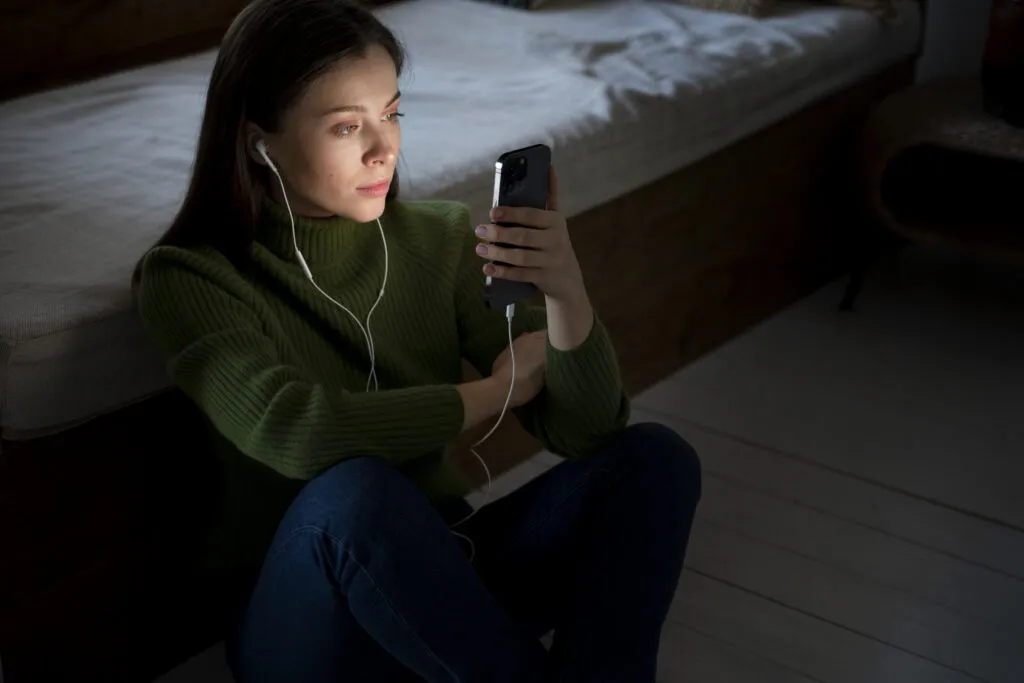Addicted to your Smartphone? You could head straight to depression
Addicted to your Smartphone:
These pocket-sized marvels serve as our communication lifelines, Addicted to your Smartphone entertainment hubs, and information repositories. However, the convenience they offer comes at a cost, one that often remains unnoticed until it’s too late – the insidious link between smartphone dependency and depression.
In recent years:
Researchers have been delving deeper into the psychological implications of excessive smartphone usage. What they’ve uncovered is alarming – a vicious cycle wherein dependency on these devices paves the way for mental health issues, particularly depression.
At first glance, the connection may seem perplexing. How could something as seemingly innocuous as a smartphone lead to a serious mental health condition like depression? The answer lies in the intricate interplay of various factors, each exacerbating the other over time.
To begin with, smartphones have reshaped the way we interact with the world around us. With social media platforms at our fingertips, we’re constantly bombarded with curated snippets of others’ lives, often leading to feelings of inadequacy and FOMO (fear of missing out). The incessant need to compare ourselves to others, coupled with the dopamine rush from likes and notifications, creates a breeding ground for anxiety and low self-esteem.
Moreover, the addictive nature of smartphones cannot be overstated. Designed to capture our attention with endless scrolling feeds and notifications, these devices hijack our cognitive resources, leaving little room for genuine human connections and self-reflection. As a result, we find ourselves increasingly isolated, despite being surrounded by virtual social networks.
The repercussions of this isolation are profound:
extending far beyond mere loneliness. Studies have shown that prolonged social media usage is associated with higher rates of depression and anxiety, as individuals struggle to maintain authentic relationships and meaningful connections in an increasingly digital world.
The smartphone-depression nexus goes even deeper:
Beyond its social implications, excessive screen time disrupts our sleep patterns, wreaking havoc on our mental well-being. The blue light emitted by screens interferes with the production of melatonin, the hormone responsible for regulating sleep cycles, leading to insomnia and fatigue. Over time, this chronic sleep deprivation can contribute to mood disorders and exacerbate existing mental health conditions.
So, what can we do to break free from this detrimental cycle? The solution lies in striking a balance – harnessing the power of technology without succumbing to its pitfalls. By practicing mindfulness and setting boundaries around smartphone usage, we can reclaim control over our lives and prioritize real-world connections over virtual distractions.
Moreover, fostering open conversations about mental health is crucial in dismantling the stigma surrounding depression and seeking help when needed. Whether through therapy, support groups, or simply reaching out to loved ones, it’s essential to remember that we’re not alone in our struggles.
Conclusion:
While smartphones have revolutionized the way we live, their omnipresence comes with a dark side. By acknowledging the link between smartphone dependency and depression, we can take proactive steps to safeguard our mental well-being and cultivate a healthier relationship with technology. After all, true happiness lies not in the glow of a screen, but in the richness of human experience.
FAQs:
Can smartphone usage really lead to depression?
Yes, studies have shown a correlation between excessive smartphone use, especially on social media, and higher rates of depression and anxiety. The constant comparison, social isolation, and disrupted sleep patterns contribute to mental health issues over time.
How does social media impact mental health?
Social media can contribute to feelings of inadequacy, anxiety, and FOMO. The curated nature of online content often leads to unrealistic comparisons, affecting self-esteem. Moreover, the addictive nature of social media can result in reduced face-to-face interactions, fostering a sense of loneliness.
Is it possible to break the cycle of smartphone dependency and depression?
Yes, it’s entirely possible. Recognizing the issue is the first step. Establishing boundaries, practicing mindful smartphone use, and prioritizing real-world connections can help break the cycle. Seeking support from friends, family, or mental health professionals is also crucial.
How does smartphone use affect sleep, and why is it important?
Smartphones emit blue light that suppresses melatonin production, disrupting sleep patterns. Adequate sleep is crucial for mental health, and chronic sleep deprivation can exacerbate or contribute to depression and anxiety.
Must read:
What Causes Numbness in Hands While Sleeping?
Secrets of DMT Meditation: What Is DMT Meditation and How Does It Work?
Benefits of Cirkul Water Bottle for On-the-Go Hydration | 2023
Why Does Conjunctivitis Eye Infection Happen? | Pink Eye | 2023
Exploring the Exciting World of AI Technology | 2023
Top 8 Japanese Dog Breeds: A Closer Look at the Most Beloved and Iconic Breeds from Japan
Reason Behind Pollution in Delhi in Winter Season: Causes and Solutions
A Festival of Lights and Togetherness in India
Why is Quantum Computing Useful For Optimization Problems? | Reshaping Industries | 2023
Do You Know? – How to apply for overseas education loan in India
New Heights: The Race for America’s Tallest Building | 2024





